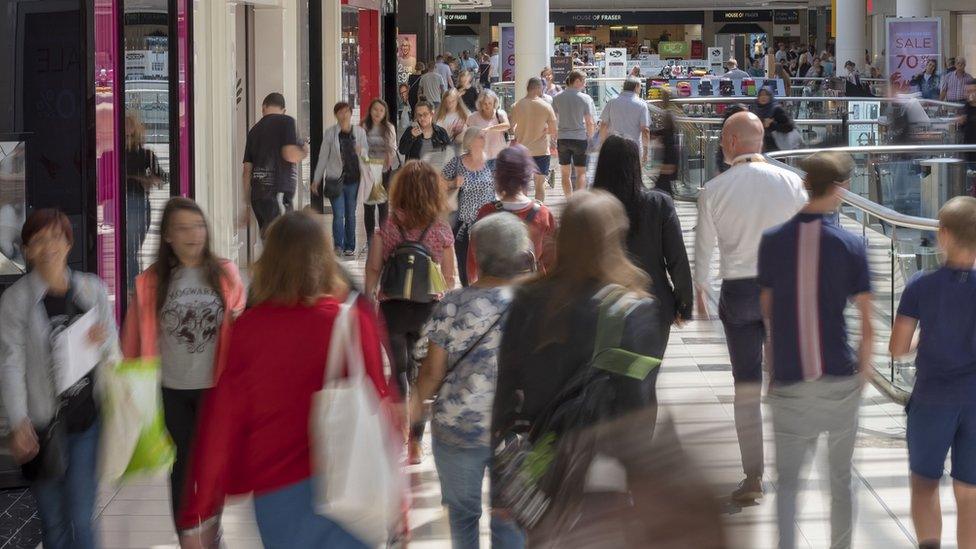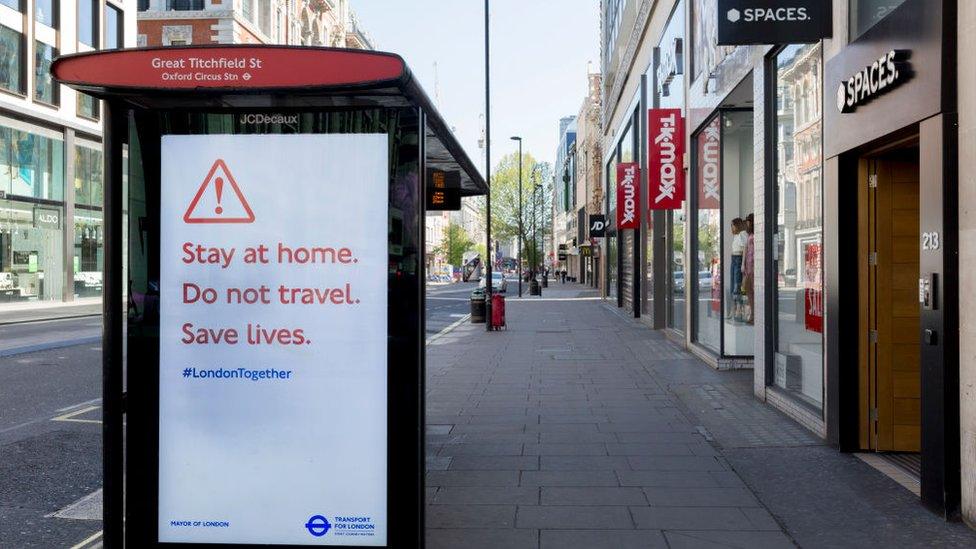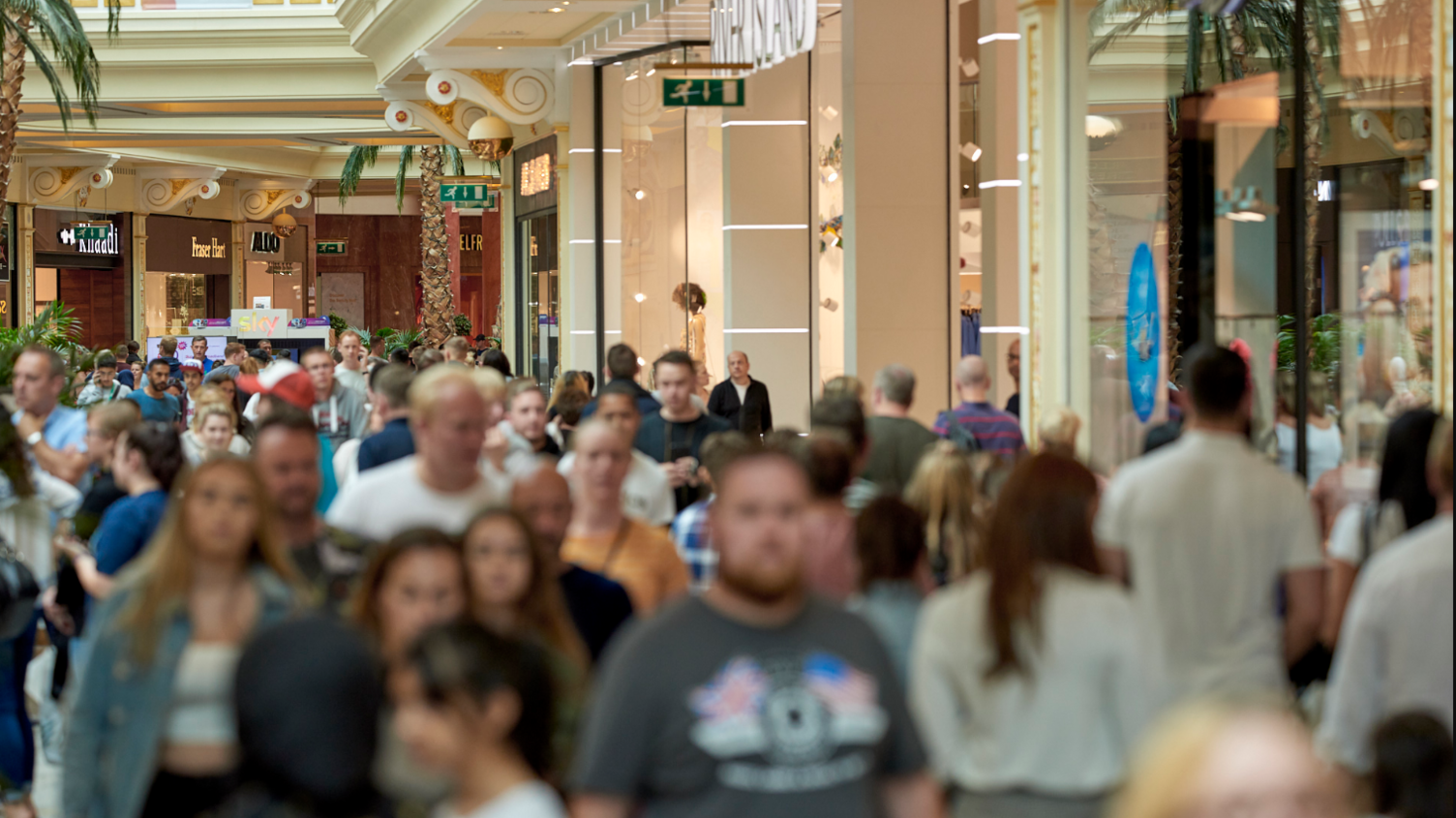Coronavirus: Shopping centre giant threatens brands over rent
- Published

Struggling shopping centre owner Intu has threatened to take legal action against big brands that are refusing to pay rent during the lockdown.
The firm, which owns Manchester's Trafford Centre and Lakeside in Essex, said some chains that had money were "not engaging" in rent negotiations.
"These are large, well-capitalised brands who have the ability to pay but have chosen not to," it said.
Intu, which reported a £2bn loss in March, refused to name the businesses.
Commercial rent payments have plunged since the lockdown forced most UK shops to close their doors.
Well-known names such as Burger King and restaurant chain Yo Sushi! have said they will not pay their landlords amid a collapse in consumer demand.
The government has taken steps to prevent landlords from using aggressive methods to collect rent from High Street shops during the lockdown.
It introduced a law allowing commercial tenants to delay full payments, unless they owe more than three months of rent. Intu has not said how the new law will affect its agreements with tenants.
The company said it had only received 40% of the rent and service charges owed by the shops in its shopping centres since the start of April.
The firm said it had decided to allow tenants to pay month-by-month, rather than asking for three months rent at a time.
However, it said there were a small number of brands that had "chosen" not to pay their rents, warning that it was prepared to take legal action.

Intu's UK shopping centres
Braehead, Glasgow
Broadmarsh, Nottingham
Chapelfield, Norwich
Derby
Eldon Square, Newcastle
Lakeside, Essex
Merry Hill, West Midlands
Metrocentre, Gateshead
Milton Keynes
Potteries, Stoke-on-Trent
Trafford Centre, Manchester
Uxbridge
Victoria Centre, Nottingham
Watford
Centres run as joint ventures:
Manchester Arndale
St David's, Cardiff
The Mall, Cribbs Causeway

In March, Intu warned that there were doubts over its ability to survive as it reported a £2bn loss for 2019.
It blamed a downturn in consumer spending that had left many retailers struggling before the pandemic even began.
In an announcement on Friday, the company said its lenders had given it more time to pay its debts.
- Published23 April 2020

- Published4 March 2020

- Published12 March 2020
